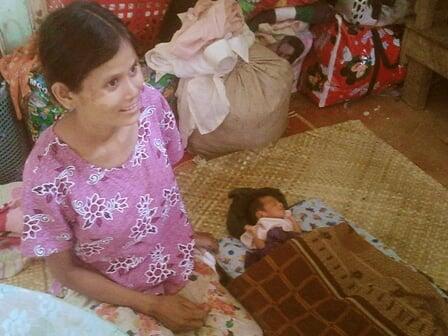SITTWE, Myanmar - Su Hnin's baby weighed only one and a half kilograms, but she is going to be fine. She was born on 22 November 2012 in Myauk Oo Hospital, a facility supported by UNFPA, the United Nations Population Fund, in a camp for internally displaced persons here in the Rakhine region of Myanmar.
The newborn is the second child of Su Hnin. She delivered the first one by herself. This time she wouldn’t have made it alone. She delivered after labour was induced, and she needed two bottles of blood. She was lucky enough to be referred from her camp to a hospital that was close enough and was equipped with medicines and trained health workers to provide basic health services in the conflict affected region.
Since the conflict between Rakhine Buddhists and Muslim Rohingyas erupted in late 2012, around 80,000 displaced persons have been living in camps in the Rakhine region; more than half are women and girls. Community health services have been disrupted and UNFPA’s partners have reported having limited access to preventative and curative services.
In response to the request of support from the Government of Myanmar to the United Nations, UNFPA is working with the Myanmar Medical Association and partners in serving women like Su Hnin to provide lifesaving reproductive health services.
The camps for internally displaced persons of Yathedaung and Sittwe count on various medical teams to provide reproductive health services, including antenatal and postnatal care, emergency obstetric care and birth spacing, among others. UNFPA has provided emergency reproductive health supplies through the Myanmar Medical Association. The supplies will help 400 pregnant women to have clean deliveries, and give 1,500 women access to contraceptives such as oral pills if needed.
Su Hnin needed nine days to recover completely from the delivery, but she happily left Myauk Oo Hospital carrying her healthy baby girl in her arms.


